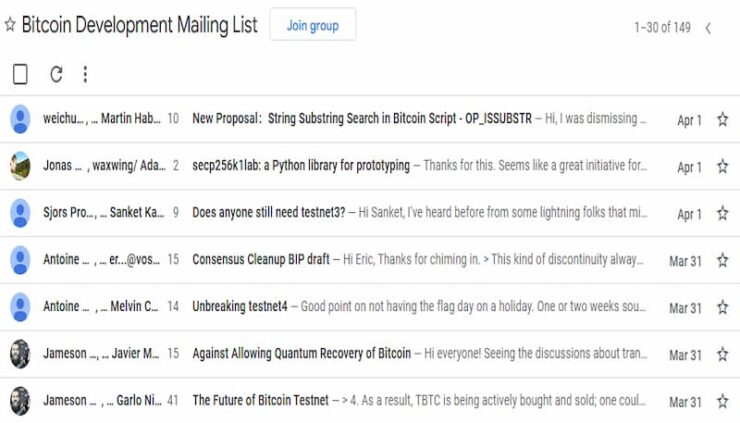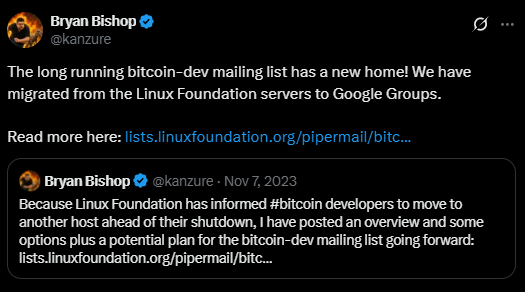One of Bitcoin’s most critical communication tools, used by developers to coordinate protocol upgrades, was temporarily banned from Google Groups on April 2, sparking concern within the open-source community.
The Bitcoin Development Mailing List, a long-standing forum for Bitcoin Core developers and researchers, was marked as containing “spam, malware, or other malicious content,” according to a warning issued by Google during the ban. The disruption lasted several hours into April 3, preventing contributors from discussing proposed changes to the world’s most valuable cryptocurrency protocol.

Bitcoin Core developer Bryan Bishop told Cointelegraph that the incident may have resulted from a coordinated bot attack. He suggested the group could have been mass-reported by fake or malicious accounts—an increasingly common tactic used to censor or disable online communities across platforms like YouTube, X, and TikTok.
“It’s possible that this whole thing might have been triggered through something like that. It might have just been someone clicking those links on a massive scale to report it,” Bishop said.
Google Responds and Restores Access
By 3 April at 2:23 am UTC, the Google Workspace Support account on X confirmed that the mailing list had been reinstated, responding to a post from moderator Ruben Somsen.
Bitcoin advocate and Block Inc. CEO Jack Dorsey also took to X, tagging Google CEO Sundar Pichai and urging an investigation into the issue, highlighting the importance of the mailing list in Bitcoin’s development process.
The Bitcoin Development Mailing List is a central hub for technical discussions and proposed improvements to the protocol. First launched in the early days of Bitcoin, it has served as a key part of the open-source workflow that governs the network, which currently secures over $1.6 trillion in value.
The list’s legacy dates back to October 31, 2008, when Satoshi Nakamoto shared the original Bitcoin white paper via the Cryptography Mailing List.
Although the mailing list has changed hosts over the years, from SourceForge to Oregon State University to the Linux Foundation, it officially migrated to Google Groups in February 2024.

Despite the disruption, Bishop confirmed no plans to abandon Google Groups, as email remains the preferred medium for protocol discussions.
He added that while mailing lists remain essential, the Bitcoin community uses platforms like GitHub and the decentralized social network Nostr to discuss protocol ideas and ongoing development work.
Broader Concerns About Platform Dependence
The temporary ban highlights a larger issue facing decentralized communities: the reliance on centralized platforms for key infrastructure. While Google’s quick response helped resolve the issue, the incident has reignited discussions about resilience, censorship resistance, and the need for redundancy in Bitcoin’s governance tools.
As Bitcoin continues to evolve, its development community may need to explore more robust, censorship-resistant communication platforms to safeguard against future disruptions, especially as its economic footprint grows and its governance processes come under increased scrutiny.





